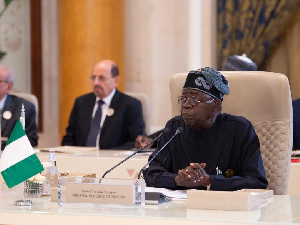Seaborne trade is at its highest demand and cargo ships are at their highest usage rate ever. Studies have indicated that the maritime sector alone consumes about 3.8 million barrels of fuel per day. Although this has a good commercial implication for fuel suppliers, shipping lines and the end trader, it unfortunately also implies that we are subject to more fuel emissions that are catastrophic to environmental health. Sulphur oxide a major component of bunker oil, is known to not only degrade the environment, threaten aquatic life, but can also causes severe lung diseases to humans.
According to the International Maritime Organisation, studies indicate air pollution from ships would contribute to more than 570,000 premature deaths worldwide between 2020-2025. Because of this the IMO has reacted strongly to set a global sulphur limit of 0.50% for fuel emitting machines including cargo vessels and its strict implementation is fixed from January 1, 2020.
However, compliance to IMO’s global sulphur cap would come at a high cost as is suggests, shipping lines would have to pay more to access lighter fuels with less than 0.50 sulphur content, and the planned response by Shipping lines would be to increase freight rates which would add more cost to the end user.
The Ghana Shippers Authority, in collaboration, with the Ghana Maritime Authority is on an awareness campaign to sensitize players in the shipping industry especially the trading community regarding the policy directive by the IMO. Also, the Shippers’ Authority, is hoping to advocate for a fair playing field, where importers do not suffer the total cost of the policy’s implementation.
According to the Chief Director of the Ministry of Transport, Mabel Sagoe, an inter-ministerial committee comprising relevant agencies has been constituted to ensure that Ghana is ready for implementation of the IMO Sulphur Cap policy by January 1, 2020.
The Chief Executive of the Ghana Shippers’ Authority, Benonita Bismarck endorsed the global drive for green shipping, and urged the various stakeholders affected by the policy to prepare adequately for the impact the policy may have on businesses, in order to not incur losses.
"It is our hope as stakeholders affected by this IMO regulations are adequately prepared for the ramifications so that we can collectively manage the unintended consequences on the industry."
She assured her outfit’s committed to continue making accessible all needed updates on the shipping sector to shippers in order to make life easier for them.
Daniel Appianin, The Deputy Director General, Technical and Operations of the Ghana Maritime Authority, the institution mandated to superintend over Ghana’s territorial waters, by regulation and control against maritime pollution and crimes, said the Authority would enforce compliance of the IMO sulphur cap policy.
He said his outfit has therefore taken up the responsibility to bring this new regulation to the attention of ship owners, ship operators, refinery industries and all relevant stakeholders in order to achieve compliance.
"Ensuring the consistent and effective implementation of the 2020 0.50% mm sulphur limit is a high priority and the implementation is the remit of the Ghana Maritime Authority," he stated.
The IMO Global Sulphur Cap, is already being complied with by some ships across the globe, and worldwide, ship owners and shipping lines are strategizing for the enforcement of the law on January 1 2020.
Business News of Wednesday, 21 August 2019
Source: Eye on Port

















